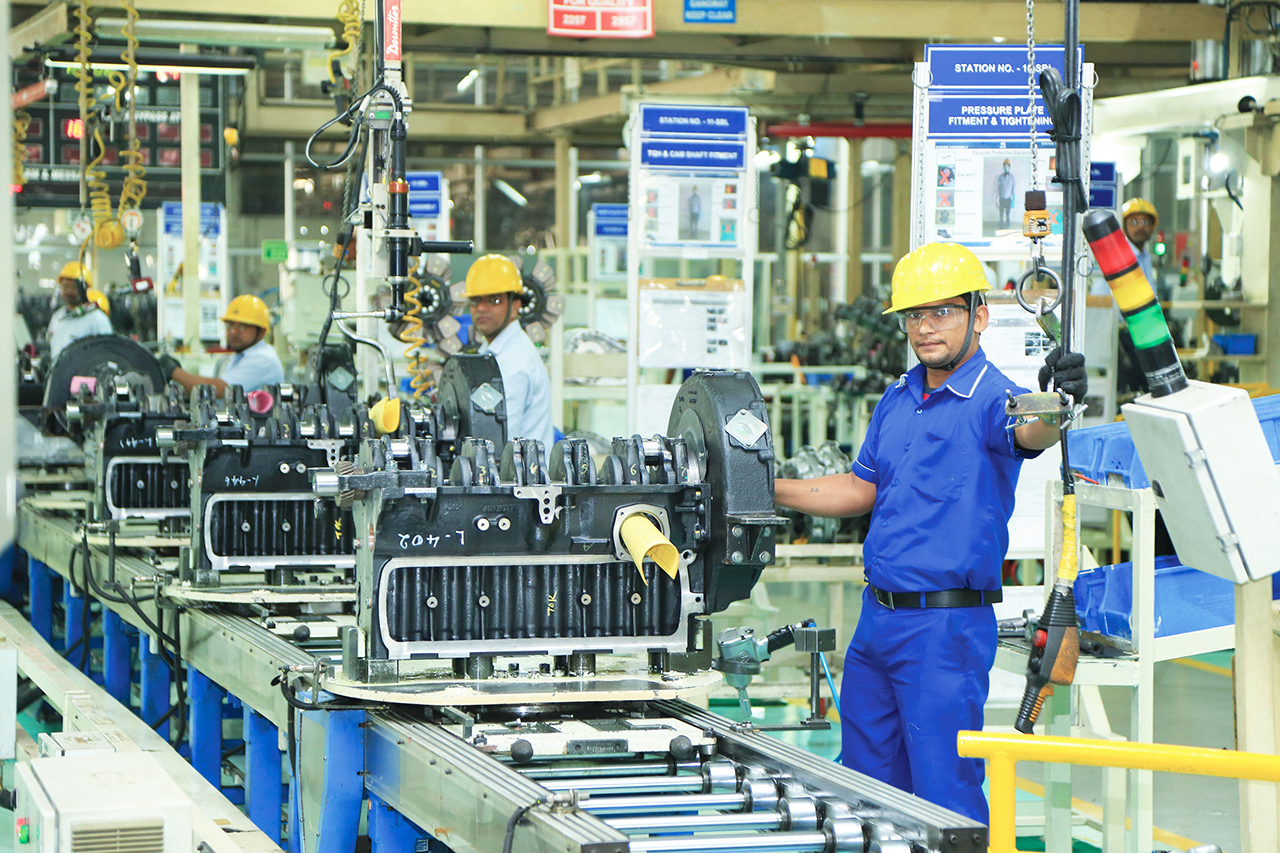Nitin Kirloskar gives an update about the key role played by micro, small and medium enterprises in the growth of the Indian automotive sector

Over the past decade, India has emerged as one of the largest and fastest growing markets in the automobile industry. In 2020, India was the fifth-largest automotive market with around 3.5 million units combined sold in the passenger and commercial vehicles’ categories. It was the seventh-largest manufacturer of commercial vehicles in 2019, as per data published by IBEF. Many multinationals are looking at India as a major manufacturing and export hub. Indian brands like Tata Motors, Mahindra and Mahindra, Hero MotoCorp and Bajaj Auto are expanding their operations within India and across the rest of the world.
India has a distinct advantage of being one of the leaders in sectors like light passenger and commercial vehicles, two-wheelers and automotive components. Due to exposure to world-class manufacturing and collaborations with world leaders, the Indian automobile industry has witnessed rapid development in research and development and supply chains within the country, thus helping the big corporations to optimise costs. This has created great opportunities for engineering and manufacturing companies in the MSME sector. Lots of MSMEs are involved in developing innovative products, components and technologies for this sector.
The Challenges
While this brings in a lot of hope for the MSME sector, there are several challenges as well. One of the most important challenges is that of sub-components. Due to the pandemic-triggered disruption, the supply chains worldwide have broken. Many countries have resorted to trade barriers and are looking inwards. This is not a good sign for world trade and is impacting the MSMEs and large corporations equally. Another big challenge is the change in people’s taste and buying patterns, something that is still emerging. It is hard to predict what will drive the buying patterns in the coming time as there are several theories working against each other.

For example, on one hand people are wary of travelling in public transport vehicles and are resorting to purchasing their own cars or two-wheelers. On the other hand, people are thinking about cars being liabilities and have started preferring cab services like Ola and Uber. The upcoming trend of electric vehicles (EV) may also have an impact in the sale of traditional petrol and diesel vehicles. Passenger and commercial vehicles running on CNG are also creating their own segment.
All these complex patterns pose a big challenge to the MSME sector when it comes to investing in technology. It is quite likely that today’s manufacturing set-up may become completely obsolete in a short span as the change in trends and technology is happening more rapidly.
Another challenge is that of automation and robotics. MSMEs need to take a call on investing in this area as automotive manufacturers may demand better quality, productivity and speed of delivery from them.

Where is the Opportunity?
There is indeed a big opportunity for the start-ups in this sector as lots of innovative ideas are required for next-generation vehicles. Driverless cars may become a reality quicker than expected. Sport cars and luxury cars may become affordable to more people if the prices come down. Sales of luxury and fancy cars are increasing worldwide – ask Tesla or Jaguar! The design studios would be more in demand as the need for better ergonomics, better looks and comfort intensifies.
The MSME sector can also get benefitted because of availability of skilled labour at low cost (this cost is rapidly increasing in China), robust research and development centres and low-cost steel production, again an advantage over China. The government also is taking lots of initiatives to boost the automotive industry and for the MSMEs in particular, which include:
• Prime Minister Employment Generation Programme and other credit support schemes
• Technology upgradation and quality certification
• Marketing and promotion schemes
• Entrepreneurship and skill development programme
• Infrastructure development programme
• Scheme of surveys, studies and policy research
• National SC-ST-HUB
• Scheme of information, education and communication.
More information about such schemes can be found on https://msme.gov.in/all-schemes. In short, if the MSME sector is looking for opportunities for growth, it exists in the automotive sector for sure. The question is whether MSMEs are ready to come forward and take the challenge.
—
About the author: Nitin Kirloskar is a consultant offering business solutions to Micro, Small and Medium Enterprises (MSME). He is a Mechanical Engineer by profession, with post graduation in Marketing and Business Management. The areas of his expertise include Branding, Business strategy, Digital marketing, International Business, Business Process Improvement and Lean Manufacturing. Nitin was involved in business strategy for various group companies of Forbes Marshall as Head of Corporate Marketing and designed & implemented their Digital Media strategy. Nitin holds Marketing Chair of ISA ACARD.